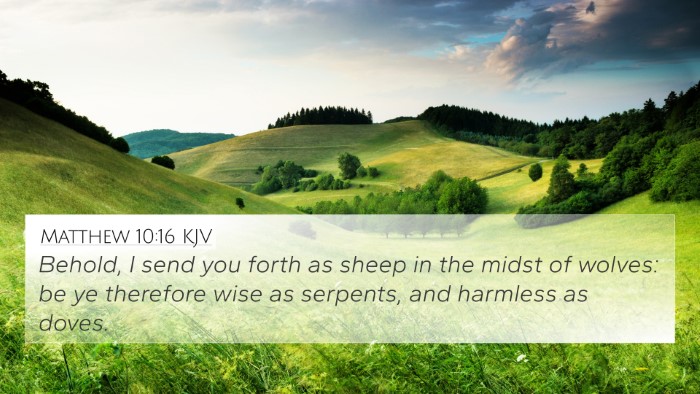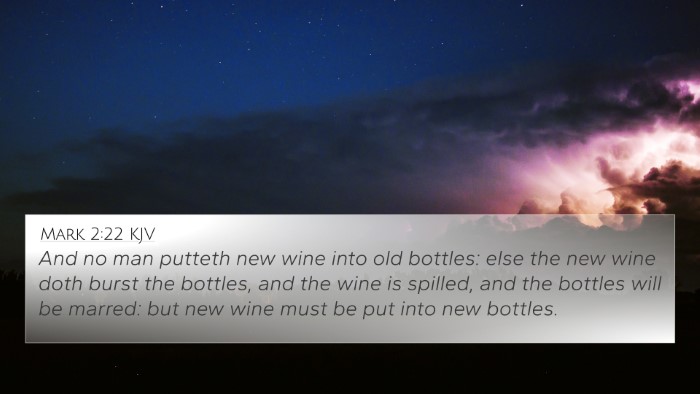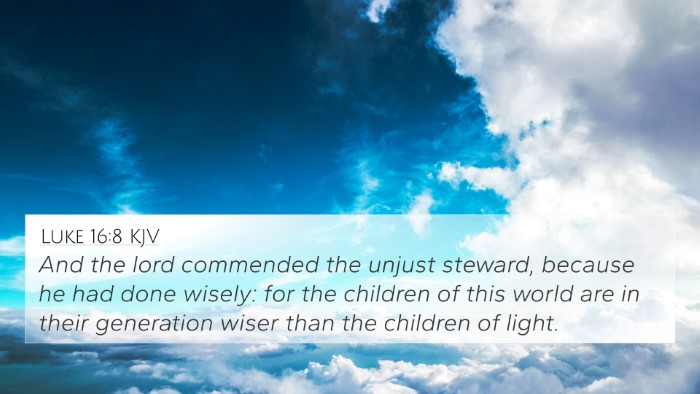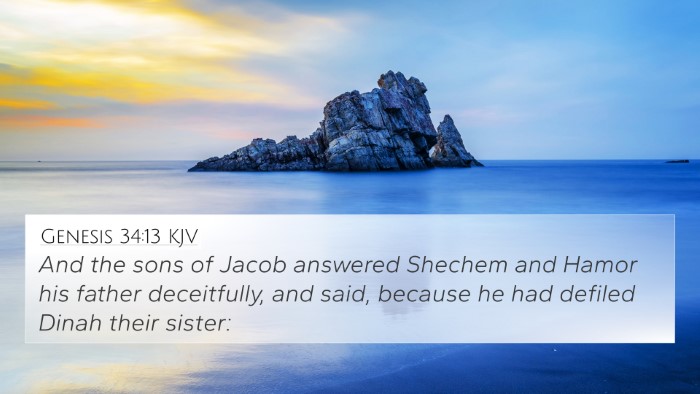Understanding Joshua 9:4
Joshua 9:4 states: "They did work wilily, and went and made as if they had been ambassadors, and took old sacks upon their asses, and wine bottles, old and rent, and bound up." This verse introduces the actions of the Gibeonites who sought to deceive the Israelites into making a peace treaty. Below, we will explore the meanings and implications of this verse by drawing insights from various public domain commentaries.
Summary of Insights
This verse highlights the cunning and deceptive strategies employed by the Gibeonites to secure their safety against the advancing Israelites. They presented themselves as weary travelers from a distant land, willing to use deceptive tactics to achieve their goal. The motivations and implications of their actions lead to several key interpretations.
-
Deception and Manipulation:
Matthew Henry emphasizes the Gibeonites' cleverness in employing deceitful means to protect themselves, illustrating how fear can drive individuals to compromise their integrity for survival.
-
Theological Reflection:
Albert Barnes notes that the Gibeonites' actions prompt reflection on the nature of trust and faith. Their desperate measures show the lengths to which people will go when they perceive a threat, setting a theological backdrop for understanding human behavior in the face of divine judgment.
-
Cross-Referencing Biblical Themes:
Adam Clarke indicates that this narrative serves as a precursor to discussions about treaties and alliances in biblical texts, establishing themes of deception that recurs throughout scripture, particularly in the context of addressing external threats.
Bible Verse Cross-References
Several Bible verses relate directly or thematically to Joshua 9:4, offering deeper insights into its meaning:
- Genesis 34:14: The story of the Shechemites provides a parallel of negotiation and deception in relationships leading to alliances.
- Joshua 9:22-23: The consequences of the Gibeonites' deception reveal the complexities of making covenants.
- 1 Kings 20:31: This verse discusses deception used in warfare, akin to Gibeon's strategies for survival.
- 2 Samuel 11:2: The misuse of sight (seeing) and understanding can reflect on how appearances can deceive, much like the Gibeonites’ guise.
- Proverbs 12:5: Good plans signify purity of heart, contrasting with the deceit shown in Joshua 9:4.
- Acts 20:29-30: Paul warns about deceptive leaders; this can correlate with the need for wisdom in recognizing true intentions.
- 2 Corinthians 11:13-15: The theme of deceit among those who transform themselves into 'angels of light' aligns with Gibeon's deception.
Thematic Connections through Cross-Referencing
The narrative in Joshua 9:4 connects with broader biblical themes via inter-Biblical dialogue. These cross-references offer tools for deeper study:
- Understanding Deception: By examining various instances of deceit in the Bible, such as Jacob’s tricks (Genesis 27) or the lies of the serpent (Genesis 3), we can draw parallels and enhance understanding.
- Justice and Covenant: Each instance of deception leads to divine justice and covenant-making practices, thus necessitating theological reflection akin to that in Joshua 9:4.
- Human Nature and Fear: The actions pointing towards survival instinct raise questions about human morality, seen throughout both Testaments.
How to Use Bible Cross-References
Tools for cross-referencing, such as a Bible concordance or a cross-reference Bible study guide, can assist in exploring indirect connections and thematic study. By identifying key themes in Joshua 9:4 and correlating references, readers can dig deeper into scriptural meaning and application.
Final Reflections
Joshua 9:4 is not merely a narrative of deception; it serves as a profound reminder of the complexities within human relationships and divine expectations. Understanding this verse connects us to larger scriptural truths and encourages further exploration of cross-references and themes throughout the Bible.
Conclusion
The themes unearthed in Joshua 9:4 mirror the fundamental aspects of human behavior and the nature of divine interaction. By engaging with this verse and its connections, we embrace a broader narrative framework and deepen our biblical knowledge.










